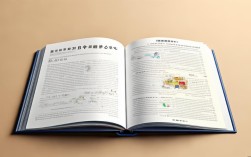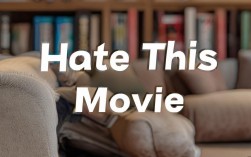Of course! "Books" is a very common and high-potential topic for IELTS Speaking, especially in Part 1 and Part 2. Here’s a comprehensive guide to help you prepare, with vocabulary, sample answers, and tips.

Part 1: Introduction and Interview
In Part 1, the examiner will ask you simple, personal questions. Keep your answers short, natural, and extended with a reason or example.
Common Part 1 Questions about Books:
- Do you like reading?
- What (kind of) books do you like to read?
- Do you prefer fiction or non-fiction books?
- When did you start reading?
- Do you prefer reading physical books or e-books?
- Have you ever given a book to someone as a gift?
Sample Answers for Part 1
Question: Do you like reading?
-
Good Answer: "Yes, I absolutely love reading. It's one of my favorite ways to relax and unwind after a long day. It’s like a mental escape for me."
- Why it's good: It's enthusiastic, uses good vocabulary ("unwind," "mental escape"), and gives a simple reason.
-
Another Good Answer: "I'd say I'm a casual reader. I don't read as much as I'd like to, but I do make a point to pick up a book whenever I have some free time."
- Why it's good: It's honest and nuanced. "Casual reader" is a great phrase. It shows you can describe your habits accurately.
Question: What (kind of) books do you like to read?
-
Good Answer: "I'm a big fan of science fiction. I find it fascinating to explore imaginative worlds and futuristic concepts. Authors like Philip K. Dick really make you think about the future of humanity."
- Why it's good: It's specific (names a genre and an author), uses strong vocabulary ("fascinating," "imaginative concepts"), and shows deeper thought.
-
Another Good Answer: "I mostly read non-fiction, particularly biographies and self-help books. I find them really inspiring and educational. For example, I just finished a biography of Steve Jobs, and it was incredibly motivating."
- Why it's good: It's specific, gives a clear reason ("inspiring and educational"), and provides a concrete example.
Question: Do you prefer reading physical books or e-books?
- Good Answer: "I'm a bit of a traditionalist, so I definitely prefer physical books. There's something special about the feel of paper and the smell of a bookshop that an e-reader just can't replicate. However, I do appreciate the convenience of e-books for travelling."
- Why it's good: It presents a clear preference but also acknowledges the other side, which sounds balanced and mature. It uses descriptive language ("feel of paper," "smell of a bookshop").
Part 2: Long Turn
You will have to speak for 1-2 minutes about a specific topic. You'll have 1 minute to prepare.
Cue Card Example:
Describe a book that you have enjoyed reading.
You should say:
- what the book is
- when you read it
- what it is about
- and explain why you enjoyed it.
How to Structure Your Answer (2-Minute Plan)
- Introduction (The Book): Start by clearly stating the book's title and author. "I'd like to talk about a book that I absolutely loved, which is 'The Alchemist' by Paulo Coelho."
- When and Where: Mention when you read it and the context. "I first read it about three years ago, during a summer holiday. I was looking for something light but meaningful to read on the beach."
- What it's About (The Plot): Briefly summarize the story without giving away the ending. Focus on the main character and his journey. "It's a philosophical novel that follows a young Andalusian shepherd named Santiago. He has a recurring dream about a treasure near the Egyptian pyramids, so he decides to leave his home and travel to pursue his 'Personal Legend'."
- Why You Enjoyed It (The Explanation): This is the most important part. Give 2-3 detailed reasons.
- Reason 1 (The Theme): "What I loved most was the central theme about following your dreams. It’s a simple message, but the way Coelho weaves it into Santiago's adventures makes it really powerful."
- Reason 2 (The Writing Style): "The writing is very poetic and easy to read. It’s not a complex book, but it’s full of proverbs and wisdom that stay with you long after you finish it."
- Reason 3 (Personal Impact): "For me, it was quite inspiring. It made me reflect on my own goals and not be afraid to take risks. It felt like a gentle push to pursue my own 'Personal Legend'."
- Conclusion: Briefly summarize your feelings. "So, all in all, 'The Alchemist' is more than just a story; it's a little guide to life, and I would highly recommend it to anyone."
Part 3: Two-Way Discussion
In Part 3, the examiner will ask more abstract and complex questions related to the Part 2 topic. This is where you can demonstrate your ability to discuss ideas.
Common Part 3 Questions about Books:
- Why do you think some people prefer reading e-books over physical books?
- Do you think reading habits are changing in your country? How?
- Is it important for children to read books? Why or why not?
- What are the differences between reading a book and watching a film based on the same book?
- Do you think libraries are still important in today's society?
- How might technology, like audiobooks, change the way people read in the future?
Sample Answers for Part 3
Question: Do you think reading habits are changing in your country? How?
- Good Answer: "Yes, I definitely think so. There's a clear shift happening. On one hand, with the rise of smartphones and social media, people's attention spans are getting shorter, which might make it harder for them to sit down with a long book. On the other hand, the popularity of e-books and audiobooks is making reading more accessible. People can now 'read' a book while commuting to work or doing chores, so it's becoming more integrated into a busy lifestyle."
- Why it's good: It presents two sides of the argument ("on one hand... on the other hand"), uses specific examples ("smartphones," "audiobooks"), and shows an understanding of modern trends.
Question: What are the differences between reading a book and watching a film based on the same book?
- Good Answer: "I think the main difference lies in the role of imagination. When you read a book, your mind creates the characters, the settings, and the world based on the author's description. It's a very personal and immersive experience. A film, however, gives you a director's specific vision. The actors and visuals are all laid out for you, which can be powerful, but it can also limit your own imagination. For example, if you've read a book and then watch the movie, you might find yourself comparing the actor's portrayal to the character you had in your head."
- Why it's good: It uses comparative language ("the main difference," "however"), develops a clear point ("role of imagination"), and provides a concrete example to illustrate the idea.
Useful Vocabulary & Phrases
| Category | Words & Phrases |
|---|---|
| Types of Books | Fiction, non-fiction, novel, biography, autobiography, sci-fi, fantasy, thriller, mystery, romance, self-help, poetry, manual, textbook |
| Verbs for Reading | To devour a book (read quickly and eagerly), to browse, to skim, to scan, to get lost in a book, to be hooked on a book, to flip through, to devour |
| Adjectives to Describe | Captivating, gripping, thrilling, suspenseful, thought-provoking, insightful, profound, moving, heart-wrenching, inspiring, entertaining, a page-turner |
| Book-Related Nouns | Author, writer, protagonist, character, plot, setting, chapter, preface, appendix, index, blurb (the text on the back), edition, hardcover, paperback, e-reader |
| Expressions | Can't put it down, lost in a book, to be a bookworm, to be an avid reader, to recommend something highly, to be a bestseller |
By preparing these ideas and vocabulary, you'll be well-equipped to talk confidently and fluently about books in your IELTS Speaking test. Good luck











